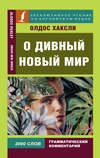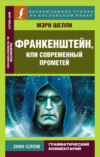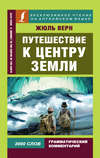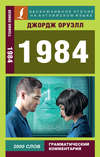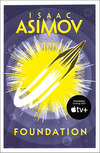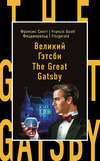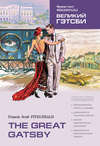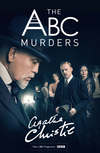Kitabı oku: «О дивный новый мир / Brave New World», sayfa 3
Chapter Four
1
The lift was crowded with men from the Alpha Changing Rooms, and Lenina was greeted by many friendly nods and smiles. She was a popular girl and, at one time or another, had spent a night with almost all of them.
In the corner, she saw the small thin body and the melancholy face of Bernard Marx.
“Bernard!” she stepped up to him. “I was looking for you. I wanted to talk to you about our New Mexico plan.” Out of the corner of her eye she could see Benito Hoover gaping with astonishment. It annoyed her. “I’d love to come with you for a week in July,” she went on. “That is, if you still want to have me.”
Bernard’s pale face flushed.
“Shouldn’t we talk about it somewhere else?” he stammered. “With all these people about…”
Lenina laughed. “How funny you are! You’ll give me at least a week’s warning, won’t you?”
Before Bernard could answer, the lift came to a standstill. They walked out to the roof.
It was warm and bright. The summer afternoon was drowsy with the hum of passing helicopters. Bernard Marx drew a deep breath. He looked up into the sky and round the blue horizon and finally down into Lenina’s face.
She smiled at him. “I must fly, Bernard. Henry gets cross if I keep him waiting. Let me know in good time about the date.” And waving her hand she ran away towards the hangars.
Henry Foster was already seated in the cockpit of his machine, waiting, when Lenina arrived.
“Four minutes late,” was all his comment, as she climbed in beside him. He started the engines. The machine shot vertically into the air. The speedometer showed that they were rising at the best part of two kilometres a minute. London diminished beneath them. The huge table-topped buildings 22were no more, in a few seconds, than a bed of geometrical mushrooms sprouting from the green of park and garden. In the midst of them, a taller fungus, the Charing-T Tower, lifted towards the sky.
Lenina looked down through the window in the floor between her feet. They were flying over the six kilometre zone of park-land that separated Central London from its first ring of suburbs. Centrifugal Bumble-puppy towers gleamed between the trees. Below, a Delta gymnastic display and community sing was in progress.
“What a hideous colour khaki is,” remarked Lenina, voicing the hypnopaedic prejudices of her caste. “I’m glad I’m not a Delta or a Gamma.”
Ten minutes later they were at Stoke Poges and had started their first round of Obstacle Golf.
2
Bernard hastened across the roof.
Lenina was making him suffer. He remembered those weeks of timid indecision, during which he had no courage to ask her. Dared he face the risk of being humiliated? But if she were to say yes! Well, now she had said it and he was still wretched—wretched that she went to join Henry Foster, that she found him funny for not wanting to talk of their most private affairs in public. Wretched because she had behaved as any healthy and virtuous English girl would have.
He opened the door of his lock-up and called to a lounging couple of Delta-Minus attendants to come and push his machine out on to the roof. The hangars were staffed by a single Bokanovsky Group, and the men were twins, identically small, black and hideous. For whatever the cause Bernard’s physique was hardly better than that of the average Gamma. He stood eight centimetres short of the standard Alpha height and was too slender. Contact with members of the lower castes always reminded him of this.
Slackly, it seemed to him, and with reluctance, the twin attendants wheeled his plane out on the roof.
“Hurry up!” said Bernard irritably. One of them glanced at him. “Hurry up!” he shouted more loudly, and there was an ugly rasp in his voice.
He climbed into the plane and, a minute later, was flying southwards, towards the river.
The various Bureau of Propaganda and the College of Emotional Engineering were housed in a single sixty-story building in Fleet Street. In the basement and on the low floors were the presses and offices of the three great London newspapers—777e Hourly Radio, an upper-caste sheet, the pale green Gamma Gazette, and, on khaki paper and in words exclusively of one syllable, The Delta Mirror. Then came the Bureau of Propaganda by Television, by Feeling Picture, and by Synthetic Voice and Music respectively—twenty-two floors of them. Above were the search laboratories and the Sound-Track Writers and Synthetic Composers rooms. The top eighteen floors were occupied the College of Emotional Engineering.
Bernard landed on the roof of Propaganda House and stepped out.
“Ring down to Mr. Helmholtz Watson,” he ordered the Gamma-Plus porter, “and tell him that Mr. Bernard Marx is waiting for him on the roof.”
He sat down and lit a cigarette.
Helmholtz Watson was writing when the message came down.
“Tell him I’m coming at once,” he said and hung up the receiver. Then he got up and walked briskly to the door.
He was a powerfully built man, broad-shouldered, massive, and yet quick in his movements. His hair was dark and curly. He was handsome and looked like an Alpha Plus. By profession he was a lecturer at the College of Emotional Engineering (Department of Writing) and a working Emotional Engineer. He wrote regularly for The Hourly Radio, composed feely scenarios, and had the knack for slogans and hypnopaedic rhymes.
“Able,” was the verdict of his superiors. “Perhaps, a little too able.”
Yes, a little too able; they were right. A mental excess had produced in Helmholtz Watson effects very similar to those in Bernard Marx. It had isolated Bernard from his fellow men, and the sense of this became in turn a cause of wider separation. Helmholtz Watson had also become aware of his difference from the people who surrounded him. He had realized quite suddenly that sport, women, communal activities were only, so far as he was concerned, second bests. Really, and at the bottom, he was interested in something else. But in what? In what?
Three charming girls from the Bureau of Propaganda by Synthetic Voice walked up to him as he stepped out of the lift.
“Oh, Helmholtz, darling, do come and have a picnic supper with us on Exmoor.”
He shook his head, he pushed his way through them. “No, no. I’m busy.”
It was not till he had actually climbed into Bernard’s plane and slammed the door that they gave up pursuit.
“These women!” he said, as the machine rose into the air. “These women!” And he shook his head, he frowned. “Too awful,” Bernard hypocritically agreed, wishing that he could have as many girls as Helmholtz did, and with as little trouble. He was seized with a sudden urgent need to boast. “I’m taking Lenina Crowne to New Mexico with me,” he said in a tone as casual as he could make it.
“Are you?” said Helmholtz, with a total absence of interest. Then after a little pause, “This last week or two I’ve been cutting all my committees and all my girls. It’s been worth it, I think.”
The rest of the short flight was accomplished in silence. When they had arrived and were comfortably stretched out on the pneumatic sofas in Bernard’s room, Helmholtz began again.
Speaking very slowly, “Did you ever feel,” he asked, “as though you had something inside you that was only waiting for you to give it a chance to come out? Some sort of extra power that you aren’t using?” He looked at Bernard questioningly.
“You mean all the emotions one might be feeling if things were different?”
Helmholtz shook his head. “Not quite. I’m thinking of a queer feeling I sometimes get, a feeling that I’ve got something important to say and the power to say it—only I don’t know what it is. If there was some different way of writing … Or else something else to write about … You see, I’m pretty good at inventing phrases. But that doesn’t seem enough. It’s not enough for the phrases to be good; what you make with them ought to be good too.”
“But your things are good, Helmholtz.”
“Oh, as far as they go.” Helmholtz shrugged his shoulders. “But they go such a little way. They aren’t important enough, somehow. I feel I could do something much more important. But what? What is there more important to say? Words can be like X-rays, if you use them properly—they’ll go through anything. You read and you’re pierced. That’s one of the things I try to teach my students—how to write piercingly. But what on earth’s the good of being pierced by an article about a Community Sing, or the latest improvement in scent organs?”
“Hush!” said Bernard suddenly, and lifted a warning finger; they listened. “I believe there’s somebody at the door,” he whispered.
Helmholtz got up, tiptoed across the room, and with a sharp quick movement flung the door wide open. There was, of course, nobody there.
“I’m sorry,” said Bernard, feeling and looking uncomfortably foolish. “I suppose I’ve got things on my nerves a bit. When people are suspicious with you, you start being suspicious with them.”
He passed his hand across his eyes and sighed. “If you knew what I’d had to put up with recently,” he said almost tearfully. “If you only knew!”
Helmholtz Watson listened with a certain sense of discomfort. “Poor little Bernard!” he said to himself. But at the same time he felt rather ashamed for his friend. He wished Bernard would show a little more pride.
Chapter Five
1
By eight o’clock the light was failing. Lenina and Henry abandoned their game and walked back towards the Club.
A buzzing of helicopters filled the twilight. Every two and a half minutes a bell announced the departure of one of the light monorail trains which carried the lower caste golfers back from their separate course to the metropolis.
Lenina and Henry climbed into their machine and started off. At eight hundred feet Henry slowed down the helicopter screws, and they hung for a minute or two above the fading landscape. The forest of Burnham Beeches stretched like a great pool of darkness towards the western sky. Their eyes were drawn to the buildings of the Slough Crematorium. For the safety of night-flying planes, its four tall chimneys were flood-lighted and tipped with crimson danger signals.
“Why do the smoke-stacks have those things like balconies around them?” enquired Lenina.
“Phosphorus recovery,” explained Henry. “P2O5 used to go right out of circulation every time they cremated someone. Now they recover over ninety-eight per cent of it. More than a kilo and a half per adult corpse. Fine to think we can go on being socially useful even after we’re dead. Making plants grow.”
Lenina, meanwhile, had turned her eyes away. “Fine,” she agreed. “But queer that Alphas and Betas won’t make any more plants grow than those nasty little Gammas and Deltas and Epsilons.”
“All men are equal on the chemical level. Besides, even Epsilons perform important services.”
“Even an Epsilon…” Lenina suddenly remembered an occasion when, as a little girl at school, she had woken up in the middle of the night and become aware, for the first time, of the whispering that had haunted all her sleeps. She saw again the beam of moonlight, the row of small white beds; heard once more the soft, soft voice that said: “Everyone works for everyone else. We can’t do without anyone. Even Epsilons are useful. We couldn’t do without Epsilons. Everyone works for everyone else. We can’t do without anyone…” Lenina remembered her first shock of fear and surprise; her speculations through half a wakeful hour; and then, under the influence of the endless repetition, the gradual soothing of her mind…
“I suppose Epsilons don’t really mind being Epsilons,” she said aloud.
“Of course they don’t. How can they? They don’t know what it’s like being anything else.”
“I’m glad I’m not an Epsilon,” said Lenina, with conviction.
“And if you were an Epsilon,” said Henry, “your conditioning would have made you no less thankful that you weren’t a Beta or an Alpha.” He put his forward propeller into gear and headed the machine towards London.
Landing on the roof of Henry’s forty-story apartment house in Westminster, they went straight down to the dining-hall. There, in a loud and cheerful company, they ate an excellent meal. Soma was served with the coffee. Lenina took two half-gramme tablets and Henry three. At twenty past nine they walked across the street to the newly opened Westminster Abbey Cabaret. It was a night almost without clouds, moonless and starry; but of this Lenina and Henry were fortunately unaware. The electric sky-signs effectively shut off the outer darkness. “CALVIN STOPES AND HIS SIXTEEN SEXOPHONISTS.” From the facade of the new Abbey the giant letters invitingly glared. “LONDON’S FINEST SCENT AND COLOUR ORGAN. ALL THE LATEST SYNTHETIC MUSIC.”
They entered. The air seemed hot and somehow breathless with the scent of sandalwood. On the domed ceiling of the hall, the colour organ had momentarily painted a tropical sunset. The Sixteen Sexophonists were playing an old favourite: “There ain’t no Bottle in all the world like that dear little Bottle of mine.” Four hundred couples were five-stepping round the polished floor. Lenina and Henry were soon the four hundred and first.
“Bottle of mine, it’s you I’ve always wanted!
Bottle of mine, why was I ever decanted?
Skies are blue inside of you,
The weather’s always fine;
For
There ain’t no Bottle in all the world
Like that dear little Bottle of mine.”
Five-stepping with the other four hundred round and round Westminster Abbey, Lenina and Henry were yet dancing in another world—the warm, the richly coloured, the infinitely friendly world of soma-holiday. How kind, how good-looking, how delightfully amusing everyone was! “Bottle of mine, it’s you I’ve always wanted…” But Lenina and Henry had what they wanted … They were inside, here and now—safely inside with the fine weather, the blue sky.
“Good-night, dear friends. Good-night, dear friends.” The loud speakers veiled their commands in a genial and musical politeness. “Good-night, dear friends…”
Obediently, with all the others, Lenina and Henry left the building.
Swallowed half an hour before closing time, that second dose of soma had raised an impenetrable wall between the actual universe and their minds. Bottled, they crossed the street; bottled, they took the lift up to Henry’s room. And yet, bottled as she was23, Lenina did not forget to take all the contraceptive precautions. Years of intensive hypnopaedia and Malthusian drill three times a week had made it almost as automatic as blinking.
“Oh, and that reminds me,” she said, as she came back from the bathroom, “Fanny Crowne wants to know where you found that lovely green morocco-surrogate cartridge belt you gave me.”
2
Alternate Thursdays were Bernard’s Solidarity Service days. After an early dinner he hailed a taxi on the roof and told the man to fly to the Fordson Community Singery.
“Damn, I’m late,” Bernard said to himself as he first caught sight of Big Henry, the Singery clock. And sure enough, as he was paying off his cab, Big Henry sounded the hour24. “Ford, Ford, Ford…” Nine times. Bernard ran for the lift.
The great auditorium for Ford’s Day celebrations and other Community Sings was at the bottom of the building. Bernard dropped down to floor thirty-three, hurried along the corridor, stood hesitating for a moment outside Room 3210, then opened the door and walked in.
Thank Ford! He was not the last. Three chairs of the twelve arranged round the table were still unoccupied. He slipped into the nearest of them as silently as he could.
Turning towards him, “What were you playing this afternoon?” the girl on his left asked. “Obstacle, or Electro-magnetic?”
Bernard looked at her (Ford! It was Morgana Rothschild) and had to admit that he had been playing neither. Morgana stared at him with astonishment. There was an awkward silence.
Then pointedly she turned away and addressed herself to the more sporting man on her left.
“A good beginning for a Solidarity Service,” thought Bernard miserably. If only he had given himself time to look around instead of scuttling for the nearest chair! He could have sat between Fifi Bradlaugh and Joanna Diesel. Instead he had gone and blindly planted himself next to Morgana. Morgana! Ford! Those black eyebrows of hers—that eyebrow, rather—Ford! And on his right was Clara Deterding. She was really too pneumatic. Whereas Fifi and Joanna were absolutely right.
The last arrival was Sarojini Engels.
“You’re late,” said the President of the Group severely. “Don’t let it happen again.”
Sarojini apologized and slid into her place. The group was now complete. Man, woman, man, in a ring of endless alternation round the table. Twelve of them ready to be made one, waiting to come together, to be fused, to lose their twelve separate identities in a larger being.
The President stood up, made the sign of the T and, switching on the synthetic music, let loose the soft beating of drums and a choir of instruments, haunting melody of the first Solidarity Hymn.
The President made another sign of the T and sat down. The service had begun. The dedicated soma tablets were placed in the centre of the table. The loving cup of strawberry ice-cream soma was passed from hand to hand and, with the formula, “I drink to my annihilation.” Then the First Solidarity Hymn was sung.
“Ford, we are twelve; oh, make us one,
Like drops within the Social River,
Oh, make us now together run
As swiftly as thy shining Flivver.”
Twelve stanzas. And then the loving cup was passed a second time. “I drink to the Greater Being” was now the formula. All drank. The Second Solidarity Hymn was sung.
“Come, Greater Being, Social Friend,
Annihilating Twelve-in-One!
We long to die, for when we end,
Our larger life has but begun.”
Again twelve stanzas. By this time the soma had begun to work. Eyes shone, cheeks were flushed. Even Bernard felt himself a little melted. When Morgana Rothschild turned and beamed at him, he did his best to beam back. But the eyebrow, it was still there; he couldn’t ignore it, couldn’t, however hard he tried. For the third time the loving cup went round; “I drink to the imminence of His Coming,” said Morgana Rothschild. She drank and passed the cup to Bernard. “I drink to the imminence of His Coming,” he repeated. He handed the cup to Clara Deterding. “It’ll be a failure again,” he said to himself. “I know it will.”
The loving cup had made its circuit. Lifting his hand, the President gave a signal; the chorus broke out into the third Solidarity Hymn.
“Feel how the Greater Being comes!
Rejoice and, in rejoicings, die!
Melt in the music of the drums!
For I am you and you are I.”
The sense of the Coming’s imminence was like an electric tension in the air. The President switched off the music and, with the final note of the final stanza, there was absolute silence. The President reached out his hand; and suddenly a Voice, a deep strong Voice, more musical than any merely human voice, richer, warmer, more vibrant with love and yearning and compassion, a wonderful, mysterious, supernatural Voice spoke from above their heads. Very slowly, “Oh, Ford, Ford, Ford,” it said on a descending scale. A sensation of warmth radiated thrillingly out from the bodies of those who listened; tears came into their eyes. “Listen!” trumpeted the voice. “Listen!” They listened. “The feet of the Greater Being,” it went on. The whisper almost expired. “The feet of the Greater Being are on the stairs.” And once more there was silence. And suddenly the tearing point was reached. Morgana Rothschild sprang to her feet.
“I hear him,” she cried. “I hear him.”
“He’s coming,” shouted Sarojini Engels.
“Yes, he’s coming, I hear him.” Fifi Bradlaugh and Tom Kawaguchi rose simultaneously to their feet.
“Oh, oh, oh!” Joanna testified.
“He’s coming!” yelled Jim Bokanovsky.
“Oh, he’s coming!” screamed Clara Deterding.
Feeling that it was time for him to do something, Bernard also jumped up and shouted: “I hear him; He’s coming.” But it wasn’t true. He heard nothing and, for him, nobody was coming. But he waved his arms, he shouted with the best of them; and when the others began to jig and stamp and shuffle, he also jigged and shuffled.
Round they went, a circular procession of dancers, each with hands on the hips of the dancer in front of them, round and round, shouting in unison, stamping to the rhythm of the music with their feet. Twelve as one, twelve as one. The music quickened. And all at once a great synthetic bass boomed out the words which announced the approaching atonement and final consummation of solidarity, the coming of the Twelve-in-One. “Orgy-porgy,” it sang, while the drums continued to beat their feverish rhythm:
“Orgy-porgy, Ford and fun,
Kiss the girls and make them One.
Boys at One with girls at peace;
Orgy-porgy gives release.”
The dancers caught up the refrain. And as they sang, the lights began slowly to fade—to fade and at the same time to grow warmer, richer, redder, until at last they were dancing in the crimson twilight of an Embryo Store. “Orgy-porgy…” In their blood-coloured darkness the dancers continued for a while to circulate. “Orgy-porgy…” Then the circle wavered, broke, fell in partial disintegration on the ring of couches which surrounded the table. “Orgy-porgy…” Tenderly the deep Voice crooned and cooed.
They were standing on the roof; Big Henry had just sung eleven. The night was calm and warm.
“Wasn’t it wonderful?” said Fifi Bradlaugh. “Wasn’t it simply wonderful?” She looked at Bernard with an expression of rapture. Hers was the calm ecstasy of achieved consummation, the peace. A rich and living peace. “Didn’t you think it was wonderful?” she insisted, looking into Bernard’s face with those supernaturally shining eyes.
“Yes, I thought it was wonderful,” he lied and looked away. He was as miserably isolated now as he had been when the service began. Alone even in Morgana’s embrace—much more alone, indeed, more hopelessly himself than he had ever been in his life before. He was utterly miserable, and perhaps (her shining eyes accused him), perhaps it was his own fault. “Quite wonderful,” he repeated; but the only thing he could think of was Morgana’s eyebrow.
Ücretsiz ön izlemeyi tamamladınız.
